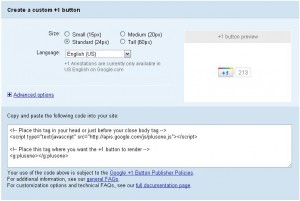If owning YouTube wasn’t enough, now the technology giant sets its sights on Hulu. Currently, Hulu is a jointly-owned outfit run by the likes of Disney, NBC Universal and News Corp. The service picks up the slack where YouTube drops it off—broadcasting tv shows and other specials that are wholly owned by mass media outlets like NBC Universal, CBS, ABC, etc.
If this purchase were to happen, it would be hard to imagine what or who could get in Google’s way. Google already has the largest and most popular search engine today and the most populated self-promoting video site available. If they add Hulu to that mix, they would have a trifecta from hell! Well, maybe it won’t be that bad, but the idea that one company could theoretically be at the helm of the web’s top three search, video and tv site is pretty scary.
Google is already in hot water over allegations that they favor their own services in search results when compared to paying advertisers. Their complaint is that other companies can’t compete with Google due to the massive amount of services and products they offer. I have to agree, but is all these ill-thoughts toward Google valid? I mean, if a company makes great products and people love using them, how is it their fault that competitors have it tough?
At any rate, the Hulu purchase would further allow Google into the connected devices of Americans all over the country via the Hulu Plus subscription. Hulu Plus allows paying members the ability to connect Hulu accounts to almost any media device: Blu-ray players, gaming consoles, smartphones, Internet-tvs and those new refrigerators that have built-in wi-fi and LCD screens. Google had already expressed major interest in a Google TV service that offered these features. Maybe it’s safe to say that Google can now proceed with that idea and adding Hulu to the mix as a fore-front content provider. Or maybe Google can simply re-brand Hulu into Google TV.
Whatever the case may be, let’s just hope things get better instead of worse. Right now, there’s an epidemic of floundering websites and media services that come and go by the night, all competing for your eyes. Only time will tell who the victor is, but one thing’s for sure, the mega powerhouse Google is not going away anytime soon.




 a little stuck with some of your skills and you need a little help. You could go it alone and spend countless hours scouring the Internet for all the resources you need, but imagine if you belonged to a group other other web designers and maybe a few web hosting providers?
a little stuck with some of your skills and you need a little help. You could go it alone and spend countless hours scouring the Internet for all the resources you need, but imagine if you belonged to a group other other web designers and maybe a few web hosting providers?